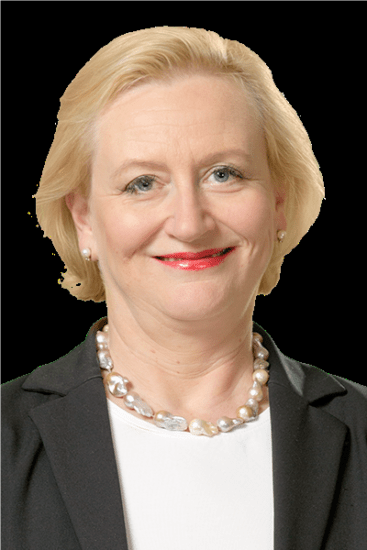Governance
Glaston Corporation’s administration and management are based on the Company’s Articles of Association, the Finnish Companies Act and Securities Markets Act, and the rules of NASDAQ Helsinki Stock Exchange. In addition, Glaston complies with the Finnish Corporate Governance Code 2025 issued by the Finnish Securities Market Association. The Code is publicly available at the address www.cgfinland.fi. In addition, operations are guided by Glaston’s own operating principles and policies, and the company’s values.
The Corporate Governance Statement 2024 is presented as a separate report and was disclosed together with the annual report and the financial statements.
Corporate Governance Statement 2023
Corporate Governance Statement 2022
Corporate Governance Statement 2021
Corporate Governance Statement 2020
Corporate Governance Statement 2019
Corporate Governance Statement 2018
Corporate Governance Statement 2017
Corporate Governance Statement 2016
Corporate Governance Statement 2015
Board of Directors
Glaston Corporation’s Board of Directors consists of a minimum of five and a maximum of nine members elected by a General Meeting of Shareholders. The Board members have a term of office of one year, expiring at the closing of the first AGM following the election.
New proposed member is Tina Wu.

Independent of the company and significant shareholders. Born 1957. eMBA, Non-executive Director. Member of the Board of Directors since 4 September 2020.
Primary work experience:
ABB Ltd., Member of the Group Executive Committee 2006–2015; ABB Ltd., President of Region Europe 2015; ABB Ltd., Head of Process Automation Division 2006−2014; ABB Ltd., Head of Business Area Process Automation 2005; ABB China Ltd., Automation Technologies Division Manager 2003–2004; ABB Automation Management Ltd, Business Area Manager, Drives and Power Electronics 2002; ABB Industry Oy, Product Responsible Unit Manager, LV Drives 1999–2002, ABB Industry Oy, Business Area Unit Manager, Drives, 1996–1999; ABB Industry Oy, CFO 1994–1996. Prior to 1994, various positions in Finnish paper and packaging companies in Finland, United Kingdom and Canada
Key positions of trust: no other positions of trust

Independent of the company and dependent of a significant shareholder. Born 1962, M.Sc. (Eng.). Georg Fischer, Head of BU Infrastructure. Member of the Board of Glaston Corporation since 2018.
Primary working experience:
Uponor Infra, President, 2014-2024; Uponor Corporation, Executive Vice President, Supply Chain, 2007-2013
Tetra Pak Market Operations, Director, Converting EU, 2004-2007
Tetra Pak Asia &Americas, Vice President, Converting Americas, 2001-2004
Business Unit Tetra Brik, Converting Director, 1999-2001
Tetra Pak, Production Director, UK, 1997-1999
Tetra Pak, Factory Manager, China, 1995-1997
Key positions of trust:
Ahlström Capital Oy, Member of the Board of Directors

Independent of the company and significant shareholders. Born 1966, M.Sc. Architecture. CEO at SARC Architects Ltd. Member of the Board of Glaston Corporation since 2016.
Key positions of trust: no other positions of trust

Dependent of the company as of November 15, 2023. Independent of significant shareholders. Born 1959. Doctor of Technology (Dr.Tech) (MBA). Member of the Board of Directors since 2018.
Primary work experience:
President of Kalmar, part of Cargotec 2015-2022
Voith, Germany, 2007–2015
Metso Corporation (Neles Automation, Valmet Automation and Kajaani Automation), Finland, USA and China, 1986–2007
Tampere University of Technology, Finland, Professor, 1998–2007 (part time)
Tampere University of Technology, Finland, 1983–86
Key positions of trust:
Arnon Group, Member of the Board of Directors
Procemex Oy, Chair of the Board of Directors
Tasowheel Oy, Member of the Board of Directors
Fastpap Oy, Chair of the Board of Directors

Independent of the company and significant shareholders. Born 1962, Master of Science (Econ.), eMBA. Professional Board member. Member of the Board of Directors of Glaston Corporation since 13 April 2021 and Chair of the Audit Committee of the Board of Directors.
Primary working experience:
Kesko Corporation, SVP, Store Sites and Investments 2013–2015 and Member of the Corporate Management Board 2005–2014, Rautakesko Ltd, President, 2011–2013, Kesko Corporation, Senior Vice President, Chief Financial Officer 2005–2011 and Vice President, Corporate Controller 2004–2005; Oy Radiolinja Ab, Executive Vice President, 2001–2003; KPMG Wideri Oy Ab, Audit partner 2000–2001, Authorized Public Accountant, APA 1992–2001, Auditor 1987–2001.
Key positions of trust:
Metso Corporation, Member of the Board of Directors and Chair of the Audit & Risk Committee; Nordea Bank Abp, Member of the Board of Directors and Member of the Audit and Remuneration & People Committees; Verkkokauppa.com Oyj, Chair of the Board of Directors and Chair of the Remuneration Committee as well as Deputy Chair of the Audit Committee.

Independent of the company and dependent of a significant shareholder. Born 1971, M.Sc. (Eng.), M.Sc. (Econ.). Director, Industrial investments at A.Ahlström Oy. Member of the Board since 2017.
Primary working experience
Corob Group, CEO, 2013-2015; CPS Color Group, EVP, Equipment division (Corob), 2012-2013; Cargotec Corporation, SVP Tail lifts, 2008-2012 & VP Corporate development 2006-2008; Bain & Company, Various positions, 1998-2006
Key positions of trust
Munksjö AB, Member of the Board of Directors
M&J Recycling Group ApS, Member of the Board of Directors

Independent of the company and significant shareholders. Born 1966, lic. oec HSG (M.A. University of St. Gallen). Synthomer Plc, Group Chief Executive Officer. Member of the Board since 28 May 2020.
Primary working experience
Conzzeta AG (since renamed as Bystronic AG), Group CEO, 2016-2021, Clariant, Switzerland, 2010-2015, President, Global Head BU Industrial & Consumer Specialties; Clariant, Hongkong, 2004-2009, Head of Region Asia Pacific, Division Textile, Leather and Paper Chemicals; Clariant, Canada, 2000-2004, Country President & CEO; Clariant, Turkey, 1997-2000, Regional CFO, Deputy General Manager Turkey, Middle East, Central Asia; Novartis, Switzerland, 1994-1997, Team Leader, Group Auditing
Key positions of trust
Indutrade, Member of the Board of Group Companies in Switzerland
Synthomer Plc, Executive Director on the Board
The Annual General Meeting elects the members of the Board of Directors. The composition of the Board of Directors is included in the Notice to the Annual General Meeting. The personal information of the candidates is published on Glaston’s web site in connection with the notice to attend the Annual General Meeting.
According to the Articles of Association, the Board of Directors consists of minimum of five (5) and a maximum of nine (9) members. Members of the Board are elected for one year at a time, and the term of office of Members of the Board expires at the end of the next Annual General Meeting that follows their election. In the selection of members, attention shall be paid to the fact that the Members’ experience and competence in the Company’s field of business and development stage are mutually complementary.
The Board of Directors elects from among its members a Chair and a Deputy Chair for one year at a time.
The Annual General Meeting on 9 April 2024 re-elected Mr. Veli-Matti Reinikkala, Mr. Sebastian Bondestam, Mr. Antti Kaunonen, Ms. Sarlotta Narjus, Ms. Arja Talma, Mr. Tero Telaranta and Mr. Michael Willome as members of the Board of Directors.
The Board of Directors’ tasks and responsibilities are determined primarily by the company’s Articles of Association, the Finnish Companies Act and other legislation and regulations. It is the responsibility of the Board of Directors to further the interests of the company and all of its shareholders.
The main duties and operating principles of the Board of Directors are defined in the board charter approved by the Board. It is the Board’s duty to prepare the matters to be dealt with by a General Meeting and to ensure that the decisions made by a General Meeting are appropriately implemented. It is also the Board’s task to ensure the appropriate arrangement of the control of the Company’s accounts and finances. In addition, the Board directs and supervises the Company’s executive management, appoints and dismisses the President & CEO and decides on the President & CEO’s employment and other benefits. In addition, the Chairman of the Board approves the salary and other benefits of the Executive Management Group. The Board approves the Executive Management Group’s charter.
The Board of Directors also decides on far-reaching and fundamentally important issues affecting the Group. Such issues are the Group’s strategy, approving the Group’s budget and action plans and monitoring their implementation, acquisitions and the Group’s operating structure, significant capital expenditures, internal control systems and risk management, key organisational issues and incentive schemes.
The Board of Directors is also responsible for monitoring the reporting process of the financial statements, the financial reporting process and the efficiency of the Company’s internal control, internal auditing, if applicable, and risk management systems pertaining to the financial reporting process, monitoring the statutory audit of the financial statements and consolidated financial statements, evaluating the independence of the statutory auditor or audit firm, particularly with respect to the provision services unrelated to the audit, and preparing a proposal for resolution on the election of the auditor.
The Board of Directors meets according to a timetable agreed in advance, generally 7–10 times per year. The Board of Directors may meet in addition to the aforementioned meetings, if necessary. The Board of Directors shall have a quorum if more than half of its members are present at the meeting. Matters shall be resolved by a simple majority of the votes cast. In the event of a tie, the Chairman shall have the casting vote.
The President & CEO, or another member of the company management designated by him, shall act as the presiding officer at Board meetings.
Self-assessment and independence review
The Board of Directors regularly reviews its own performance and working practices. Moreover, the Board conducts an annual assessment of the independence of its members.
According to the assessment of independence conducted in 2021, the members of the Board of Directors are independent of the company and, with the exception of Tero Telaranta, also independent of significant shareholders in the company.
Glaston’s Board of Directors has two committees: an Audit Committee and a People and Remuneration Committee. The Board of Directors appoints the members and chair of the committees, taking into account the expertise and experience required for the duties of the committees. The members of the committees are appointed for the term of office of the Board of Directors. The committees are preparatory bodies of the Board of Directors and do not have their own decision-making power.
Audit Committee
The Audit Committee assists the Board of Directors by preparing matters within the competence of the Board of Directors. The Committee reports to the Board of Directors on matters discussed and measures taken at least four times a year and makes proposals to the Board for decision-making, if necessary. The members of the Board of Directors, the CEO and the CFO are entitled to attend meetings of the Committee.
The Board of Directors specifies the duties of the Audit Committee in a charter confirmed by the Board of Directors. The Audit Committee monitors and assesses the financial reporting process, reviews the auditor’s reports concerning financial statements as well as the supplementary report, reviews the efficiency of Glaston’s internal control, internal control audit and risk management systems and monitors the Group’s risks as well as the quality and scope of risk management. In addition, the Committee establishes principles concerning the monitoring and assessment of related party transactions, and evaluates the independence of the statutory audit firm and prepares a proposal for the election and remuneration of the auditor. Other duties include reviewing the annual audited financial statements, and annual and quarterly earnings releases, evaluating compliance with laws, regulations and corporate practices, overseeing significant litigation concerning Group companies, and performing any other duties assigned to the Committee by the Board of Directors.
The Audit Committee regularly carries out self-evaluation of its work, and the Chair of the Committee reports the results to the Board of Directors.
People and Remuneration Committee
The People and Remuneration Committee assists the Board of Directors by preparing matters within the competence of the Board of Directors. The Committee is not an independent decision-making body; the Board of Directors makes decisions collectively within its competence. The Board of Directors is responsible for the duties it assigns to the Committee.
The Board of Directors specifies the duties of the People and Remuneration Committee in a charter confirmed by the Board of Directors. Key duties of the People and Remuneration Committee include preparing the remuneration policy and remuneration report for the Board and the Annual General Meeting, preparing salaries and other benefits of Glaston’s CEO and other members of the Executive Management Group, preparing the nomination of the CEO and other members of the Executive Management Group and their successors, preparing proposals for Glaston’s short- and long-term incentive schemes as well as monitoring the company’s key personnel’s successor and development plan. In addition, the Committee’s duties include carrying out all other duties assigned to the Committee by the Board of Directors.
The People and Remuneration Committee convenes at the invitation of the Chair, as necessary and at least twice a year. The Members of the Board of Directors and the CEO have the right to attend the meetings of the Committee.
The People and Remuneration Committee regularly carry out self-evaluation of its work, and the Chair of the Committee reports the results to the Board of Directors.
The compositions of the Board committees are:
Audit Committee
Arja Talma (Chair), Sarlotta Narjus and Tero Telaranta.
People and Remuneration Committee
Veli-Matti Reinikkala (Chair), Sebastian Bondestam, Antti Kaunonen and Michael Willome.
Executive Leadership Team

CEO & President. Born 1982. M.Sc. (Tech), B.Sc. (Econ). Joined the company on August 12, 2024.
Primary work experience
Metso Corporation, Materials Processing Products, Senior Vice President 2019– August 2024
Metso Corporation, Vice President, Parallel High-End Aggregates business 2018–2019, Vice President, Life Cycle Service Sales and Product Management 2015–2016, Global Sales Director, Performance Service 2014–2015
Posti Group, Vice President, Parcel Services 2016–2018
Outotec (Since 2020 part of Metso Outotec, as of 2023 Metso Corporation), Sales Director, Operation & Maintenance Services 2012–2014, Head of Global Spare Parts Product Management 2011–2012
ABB, Service, Project Manager 2009–-2011, Full Service, Business Controller 2007–2009
VTT Technical Research Centre of Finland, Research Scientist 2006–2007
Key positions of trust
Junttan Oy, Member of the Board of Directors

EVP, Service Supply & Development and member of the Executive Leadership Team as of April 2025. Born 1979. M.Sc. (Business Administration), B.Sc. (Production & Operations Management).
Primary work experience
Nokia, 2022−April 2025, Business Operations Lead, Supply Chain CoE
KONE, 2015−2022, Director, Supply Chain Operations
Outotec, 2011−2015, Head of Supply Chain Management
Toyota Motor Europe, 2006−2011, Senior Specialist, Strategic Production Planning
Key position of trust: –

Chief Sales Officer (CSO). Born 1974, M.Sc. (Econ.). Joined the company in 2002.
Primary work experience
Acting CEO&President 1 June-31 December 2020, COO, Sales and Integration 2020, SVP Machines, 2016-2019; Glaston Corporation, CFO, 2012-2016; Glaston America Inc., 2010-2012, Vice President, Sales and Services; Glaston Corporation, Group Treasurer, 2007-2010; Tamglass Finton Oy, 2005-2007, Managing Director; Tamglass Lasinlajostus Oy, 2002-2005, Business Controller; Finnforest Oyj, 1998-2002, Financial Management Positions.
Key position of trust: –

SVP People and Culture and member of the Executive Leadership Team as of August 2023. Born 1979. M.Sc. (Econ.) and Master’s in International Management
Primary work experience
Kalmar / Cargotec Corporation, 2023 HR Director, Integrated Supply Chain, 2021-2022 HR Director, Services & Technology, 2020-2021 HR Director, South & West Europe, 2018-2019 HR Director, North Europe,
2016-2017 HRD Manager/Specialist
Barona IT / Saranen Consulting, 2013-2014 Project Manager
KONE Corporation, 2006-2012, various HR Development positions
Key positions of trust: –

General Counsel, Secretary of the Board of Directors and member of the Executive Leadership Team as of April 2023. Born 1987, Master of Laws LL.M. (University of Helsinki)
Primary work experience
KONE Oyj 2021-2023 Head of Legal, Services and Technology
KONE Oyj 2015-2021 Legal Counsel
UPM-Kymmene Oyj, Group Legal Counsel 2013-2015
Key positions of trust: –

Member of the Executive Leadership Team as of March 2025. Joined Glaston in 2022. Born 1974, M.Sc. (Econ.)
Primary work experience
Glaston Corporation, 2022-2025, Vice President, Business Control and Strategy
Posti Group Oyj, 2019-2022, Head of Finance, Media and Partners
UPM, 2016-2019, Director, Group Business Control
Microsoft, 2015-2016 Senior Manager, Phones Supply Chain Finance & 2014-2015 Head of Finance, Portfolio
Nokia 2005-2015, various leadership positions in finance and ICT
Key positions of trust: –

Chief Solutions & Operations Officer as of January 1, 2025. Member of the Executive Leadership Team as of December 2020. Born 1981. MSc, Industrial engineering and management. Employed by the company since 2013.
Primary working experience
SVP Architecture 10/2024-12/2024. SVP Glaston Heat Treatment Technologies 2020−October 2023, VP Emerging Technologies 2019−2020; Director Glaston Architechtural Business Unit 2016−2019; Glaston Marketing Director 2015−2016; Director, Glaston Business Solutions 2013−2015
Key positions of trust: –
Chief Executive Officer
The Board of Directors of Glaston Corporation appoints the company’s Chief Executive Officer (CEO), whose key terms and conditions of employment are specified in a written contract approved by the Board. The CEO is responsible for the operational management of Glaston Group in accordance with the Finnish Companies Act and instructions given by the Board. The CEO reports to the Board on, among other things, the company’s financial position, the business environment as well as changes therein, and on other matters of significance. The CEO prepares the matters to be handled by the Board and implements the decisions made on them. The CEO is the Chairman of Glaston’s Executive Leadership Team and steers the business of the company and its business areas and units.
Executive Leadership Team
The Executive Leadership Team includes the CEO, the Chief Financial Officer, the CSO (Chief Sales Officer), the Chief Solutions & Operations Officer, the EVP Service Supply & Development, the General Counsel and the SVP People and Culture.
Remuneration
The Annual General Meeting decides on the remuneration of the Board members based on the recommendation of the Shareholders’ Nomination Board.
The remuneration of the Board of Directors consists of an annual fee and meeting fee. The meeting fee is paid for every meeting attended.
In accordance with a decision of the Annual General Meeting held on 9 April 2024, the annual remuneration of the Chair of Glaston’s Board of Directors is EUR 74,000, the remuneration of the Deputy Chair EUR 45,000 and the remuneration of Members of the Board EUR 35,000.
A member of the Board of Directors may, at his/her discretion, choose to receive the annual fixed remuneration partly in company shares and partly in cash so that approximately 40 % of the annual fixed remuneration is paid in Glaston Corporation’s shares. The number of shares forming the above remuneration portion, which would be payable in shares, will be determined based on the share value in the stock exchange trading maintained by Nasdaq Helsinki Ltd, calculated as the trade volume weighted average quotation of the share during the one-month period immediately following the date on which the interim report of January-March 2024 of the company is published.
The meeting remuneration is for the Chair of the Board of Directors EUR 800 for meetings held in the Chair’s home country and EUR 1,500 for meetings held elsewhere, and for the Members of the Board, EUR 500 for meetings held in the home country of the Member of the Board and EUR 1,000 for meeting held elsewhere. In addition, the Board members are compensated for travel and accommodation costs and direct expenses related to Board work.
The members of the Audit and People and Remuneration Committees are paid a meeting fee of EUR 500 for each meeting attended. In addition to the meeting fee, the Chair of the Audit Committee is paid an annual fee of EUR 10,000 and the Chair of the People and Remuneration Committee an annual fee of EUR 7,500.
The Board members do not participate in Glaston’s incentive programs.
In 2024, remuneration to the Board of Directors totalled EUR 376,100.
| Remuneration 2024 | Remuneration 2023 | |
| Veli-Matti Reinikkala, Chair of the Board | 97,600 | 94,200 |
| Sebastian Bondestam, Deputy Chair | 52,500 | 51,500 |
| Antti Kaunonen | 41,000 | 41,000 |
| Sarlotta Narjus | 43,500 | 42,000 |
| Arja Talma | 53,000 | 52,000 |
| Tero Telaranta | 43,500 | 42,000 |
| Michael Willome | 45,000 | 43,000 |
| Total | 376,100 | 365,700 |
The Board of Directors decides on the compensation and benefits of the CEO. The Chair of the Board of Director’s approves the salary and other benefits of the Executive Leadership Team.
The remuneration of the President & CEO and the Members of the Executive Leadership Team consists of a fixed monthly salary, an annual bonus, other benefits and a share-based incentive plan, which is intended as a long-term reward. The annual bonus is determined on the basis of Glaston’s financial performance.
Fixed salary
Fixed salary including fringe benefits.
Short term incentives
The short-term incentives are based on Glaston’s financial performance. The criteria for payments are consolidated result, result of the business area or business unit as well as functional targets.
The maximum annual bonus of the CEO is 80% of the annual salary and for the other members of the Executive leadership Team 40% of the annual salary.
Long term incentives
The aim of the long term incentive plan is to align the objectives of the shareholders and the key employees in order to increase the value of the company in the long term, to retain the key employees at the company, and to offer them a competitive incentive plan that is based on earning and accumulating the company’s shares.
The Board of Directors resolves on the plan’s performance criteria and on the performance levels at the beginning of each performance period. The key employees will receive the company’s shares as a reward, if the performance levels of the performance criteria, set by the Board of Directors, are achieved. As a rule, no reward will be paid, if a key employee’s employment or service terminates before the reward payment.
The CEO and President and each member of the Executive Leadership Team of the Company must hold 50% of the net number of shares he or she has received on the basis of the plan until the number of the company’s shares he or she holds corresponds to the value of his or her gross annual base salary. Such number of shares must be held as long as such person’s employment or service in a company belonging to the Group Company continues.
More information about the Performance Share Plans can be found in the section Share-based incentive plans.
Period of notice and retirement
The CEO’s minimum period of notice is six months. In the event the company would give notice to the CEO, the severance payment will not generally exceed the value of 12 months’ fixed base salary and financial benefits. For certain circumstances, such as takeovers or other corporate events, the Board of Directors may offer the CEO a severance payment equalling up to twenty-four (24) month’s fixed base salary and benefits, including bonus.
The CEO has the possibility to retire at 63 years of age. The retirement age of the other members of the Executive Leadership Team is in accordance with normal local legislation.
Share-based incentive plan 2022−2026
In January 2022, the Board of Directors of Glaston Corporation resolved on the share-based incentive plan 2022−2026 for the Group key employees in accordance with the terms and conditions materially corresponding to the terms and conditions of the share-based incentive plan 2019−2023.
The aim of the incentive plan is to align the objectives of the shareholders and the key employees in order to increase the value of the company in the long term, to retain the key employees at the company, and to offer them a competitive incentive plan that is based on earning and accumulating the company’s shares.
The Performance Share Plan 2022−2026 comprises three performance periods, calendar years 2022−2024, 2023−2025, and 2024−2026. The Board of Directors resolves on the plan’s performance criteria and on the performance levels at the beginning of each performance period. The key employees will receive the company’s shares as a reward, if the performance levels of the performance criteria, set by the Board of Directors, are achieved. As a rule, no reward will be paid, if a key employee’s employment or service terminates before the reward payment.
The CEO and President and each member of the company’s Executive Leadership Team must hold 50% of the net number of shares he or she has received on the basis of the plan until the number of the company’s shares he or she holds corresponds to the value of his or her gross annual base salary. Such number of shares must be held as long as such person’s employment or service in a company belonging to the Group company continues.
Performance Period 2023−2025
The potential reward of the performance period 2023−2025 will be based on the Glaston Group’s comparable EBITA, Service Net Sales and EPS during the period of 1 January 2023−31 December 2025. If the performance levels of the performance criteria for
the performance period 2023−2025 are achieved in full, the payable rewards correspond to a maximum total of 516,000 Glaston Corporation shares, including also the proportion to be paid in cash.
The potential reward from the performance period 2023−2025 will be paid in 2026 in a manner resolved by the Board of Directors, either partly in the company’s shares and partly in cash, in which case the cash proportion is intended to cover taxes and
tax-related costs arising from the reward to the key employee, or fully in cash.
The reward to be paid on the basis of the plan may be reduced if the reward cap set by the Board of Directors is reached.
On December 31, 2024, 16 key persons belong to the target group of the plan for the performance period 2023–2025.
Performance Period 2022−2024
The potential reward of the performance period 2022−2024 will be based on the Glaston Group’s comparable EBITA and Service Net Sales during the period of 1 January 2022−31 December 2024. If the performance levels of the performance criteria for the performance period 2022−2024 are achieved in full, the payable rewards correspond to a maximum total of 416,800 Glaston Corporation shares, including also the proportion to be paid in cash.
The potential reward from the performance period 2022−2024 will be paid in 2025 in a manner resolved by the Board of Directors, either partly in the company’s shares and partly in cash, in which case the cash proportion is intended to cover taxes and tax-related costs arising from the reward to the key employee, or fully in cash.
The reward to be paid on the basis of the plan may be reduced if the reward cap set by the Board of Directors is reached.
On 31 December 2024, eight key persons belong to the target group of the plan for the performance period 2022–2024.
Share-based incentive plan 2025−2029
In February 2025, The Board of Directors resolved on the share-based incentive plan 2025−2029 for the Group key employees in accordance with the terms and conditions materially corresponding to the terms and conditions of the share-based incentive plan 2019−2023.
The share-based incentive plan 2025−2029 comprises three performance periods, calendar years 2025−2027, 2026−2028, and 2027−2029. The Board of Directors resolves on the plan’s performance criteria and on the performance levels at the beginning of each performance period. The key employees will receive the company’s shares as a reward, if the performance levels of the performance criteria, set by the Board of Directors, are achieved. As a general rule, no reward will be paid, if a key employee’s employment or service terminates before the reward payment.
The CEO and President and each member of the Executive Leadership Team of the company must hold 50% of the net number of shares he or she has received on the basis of the plan until the number of the company’s shares he or she holds corresponds to the value of his or her gross annual base salary. Such number of shares must be held as long as such person’s employment or service in a company belonging to the Group Company continues.
Performance Period 2025−2027
The potential reward of the performance period 2025−2027 will be based on the Glaston Group’s Cumulative comparable EBITA, cumulative Service Net Sales and annual Earnings per Share, EPS during the period of 1 January 2025−31 December 2027. If the performance levels of the performance criteria for the performance period 2025−2027 are achieved in full, the payable rewards correspond to a maximum total of 796,000 Glaston Corporation shares, including also the proportion to be paid in cash.
The potential reward from the performance period 2025−2027 will be paid in 2028 in a manner resolved by the Board of Directors, either partly in the company’s shares and partly in cash, in which case the cash proportion is intended to cover taxes and tax-related costs arising from the reward to the key employee, or fully in cash.
The reward to be paid on the basis of the plan may be reduced if the reward cap set by the Board of Directors is reached.
In total 14 key persons, including the company’s key executive leaders, belong to the target group of the plan in the performance period 2025–202
The table presents the total remuneration of the President & CEO and the other Members of the Executive Leadership Team. Anders Dahlblom served as the President and CEO until 15 November 2023, after which Antti Kaunonen served as the Interim CEO until 12August 2024, after which Toni Laaksonen served as CEO & President.. For 2024, the CEO salaries in the table include the total combined salaries of Laaksonen and Kaunonen.
| EUR | 2024 | 2023 |
| President & CEO | ||
| Paid salary | 337,815 | 334,904 |
| Performance bonuses | 86,458 | 45,725 |
| Share-based bonus | - | - |
| Total salary | 424,273 | 380,630 |
| Fringe benefits | 241 | 10,757 |
| Total | 424,514 | 391,387 |
| Statutory pension contributions (TyEL or similar scheme) | 112,332 | 102,574 |
| Voluntary pension contributions | - | 39,962 |
| Other Executive Leadership Team | ||
| Paid salaries | 1,376,156 | 1,495,668 |
| Performance bonuses | 128,753 | 169,433 |
| Share-based bonus | -12,739 | 137,989 |
| Total salaries | 1,492,170 | 1,803,091 |
| Fringe benefits | 140,152 | 184,451 |
| Total | 1,632,322 | 1,987,542 |
| Statutory pension contributions (TyEL or similar scheme) | 177,273 | 265,644 |
| Voluntary pension contributions | 19,224 | 43,257 |
Risk Management and Internal Control
Risk management and internal control are part of Glaston’s management system. Risk management is an essential part of planning, decision-making and management processes, and it is being applied in all of Glaston’s operations worldwide. The objective of risk management is to ensure the achievement of business targets and to safeguard operational continuity.
The purpose of internal control on the other hand is to ensure the effective and profitable operations of the company, sufficient and appropriate management of business risks, and reliable information.
The control system is also used to monitor compliance with specified operating principles and issued instructions.
Glaston’s risk management process is introduced in the Corporate Governance Statement. The Group’s risks are covered in more detail in the Board of Directors’ Report. The management and organisation of the Group’s financial risks are presented in more detail in Note 3 of the consolidated financial statements.
Risk management is an essential part of planning, decision-making and management processes, and a risk management programme is applied in all of Glaston’s operations worldwide. The objective of risk management is to ensure the achievement of business targets and to safeguard operational continuity. Glaston applies a risk management policy approved by the company’s Board of Directors.
The principle guiding Glaston’s risk management is the continuous, systematic and appropriate development and implementation of the risk management process, with the aim of the comprehensive recognition and appropriate management of risks.
From the perspective of risk management, Glaston has divided risks into four different groups: strategic risks, operational risks, financial risks and hazard risks. Risks of property, business interruption and liability losses arising from the Group’s operations have been covered by appropriate insurance, and management of financial risks is the responsibility of the Group Treasury in the Group’s parent company.
Glaston’s risk management consists of the following stages: risk recognition, risk assessment, risk handling, risk reporting and communication, monitoring of risk management measures and processes, operational continuity planning and crisis management.
As part of the risk management process, the most significant risks and their possible effects are reported to company management and the Board of Directors regularly, based on which management and the Board can make decisions on the level of risk that the business areas and units are possibly ready to accept in each situation or at a certain time.
In practice, risk management consists of appropriately specified tasks, operating practices and tools, which have been adapted to Glaston’s business area, business unit and Group-level management systems. Risk management is the responsibility of the directors and managers of each business area, business unit and Group function. Risk recognition is in practice the responsibility of every Glaston employee.
A strategic risk for Glaston is above all the loss of the Group’s market shares as well as the arrival of a competing machine and glass processing technology on to the market in connection with technological development, which would require Glaston to make considerable product development investments. Changes to legislation that regulate the company are also strategic risks.
Glaston’s most significant operational risks include management of large customer projects, the availability and price development of components, management of the subcontractor network, succeeding in the effective protection of intellectual property rights and efficient production as well as the availability and permanence of personnel.
The Group’s financial risks consist of foreign exchange, interest rate, credit loss, counterparty and liquidity risks. The nature of international business means that the Group has risks arising from fluctuations in foreign exchange rates. Changes in interest rates represent an interest rate risk. Credit loss and counterparty risks arise mainly from risks associated with the payment period granted to customers. Liquidity risk is the risk that the Group’s negotiated credit facilities are insufficient to cover the financial needs of the business or that obtaining new funding for these needs will cause a significant increase in financing costs.
The aim of internal control is to ensure that the Group’s operations are efficient, productive and reliable and that legislation and other regulations are complied with. The Group has specified for the main areas of its operations Group-wide principles that form the basis for internal control.
The Group’s internal control systems serve to provide reasonable assurance that the financial reports published by the Group give reasonably correct information about the Group’s financial position. The Board of Directors and the President & CEO are responsible for arranging internal control.
The Group’s internal control is decentralised to different Group functions, which supervise within their areas of responsibility compliance with the policies approved by the Board of Directors. The Group’s financial management and operational control are supported and coordinated by the Group’s financial management and controller network.
The Company has no separate internal auditing organisation. The Group’s Financial Management organisation regularly monitors the reporting of segments and addresses deviations perceived in reporting and, if necessary, performs either its own separate internal auditing or commissions the internal auditing from external experts.
In 2024, internal audit was performed by an outsourced service provider.
Articles of Association
Code of Conduct
Glaston is committed to doing business in a responsible and sustainable way in every business situation and transaction. By acting in a responsible manner, we are also laying the foundation for long-term success and growth.
The Code of Conduct sets out our standards of ethical and responsible conduct and determines how we at Glaston should conduct ourselves in interactions with fellow employees, our customers, the communities in which we operate and other stakeholders.
The Code has been approved by Glaston’s Board of Directors. The Code is applicable to all Glaston Group companies and all employees, including management, in every country in which we operate. Glaston also expects its business partners to adhere to similar principles.
Respecting human and labour rights
Glaston respects human rights and basic labour rights as set forth in the United Nations Universal Declaration of Human Rights, the United Nations Guiding Principles on Business and Human Rights, the United Nations Global Compact, OECD’s Guidelines for Multinational Enterprises and the International Labour Organization’s Declaration of Fundamental Principles and Rights at Work.
Glaston does not use child or forced labor, or contract with suppliers or subcontractors using them.
Protecting health and safety
Glaston is committed to providing healthy and safe working conditions to all and complies with all applicable local health and safety laws and regulations and aim to continuously improve health and safety performance.
Every Glaston employee and everyone we work with has a responsibility to follow given rules and safety instructions.
Respectful work environment
At Glaston, people are treated in an appreciating, polite and respectful manner. The work environment is based on mutual trust, and no harassment, discrimination, threats, pressuring or abuse is tolerated. Insulting and inappropriate behavior is not tolerated.
Diversity is promoted and valued. We appreciate diversity in our employees’ background, talent, insight, education and experience. We respect freedom of association and recognize the right to collective bargaining.
Combating bribery and corruption
In its everyday activities, Glaston is committed to combating bribery and corruption and respects all applicable anti-corruption and anti-bribery laws. The Code of Conduct unequivocally prohibits the payment and receipt of bribes.
No direct or indirect payments can be made, nor can the company’s funds be conveyed directly or indirectly to any party to gain an improper advantage. In addition, the company’s personnel are instructed to avoid conflicts of interest and to refuse all improper payments and benefits.
Reporting
Glaston maintains company records in accordance with good business practices, generally accepted accounting principles and Nasdaq Helsinki Stock Exchange Rules and no false or intentionally inaccurate entries shall be made in the company’s accounts.
Fair competition
Glaston takes competition rules very seriously and every employee should act in accordance with them. Glaston complies internationally with EU competition legislation, while also taking into account all stricter local rules. Activities such as price fixing, market or customer allocation, bid rigging or boycotting, are prohibited.
Intellectual Property
Intellectual property is one of the company’s most valuable assets and the patents, trademarks, copyrights, trade secrets, and other proprietary information must be protected. At the same time, each Glaston employee must respect the intellectual property rights of others.
Reporting violations
Any violations of the Code of Conduct and other guidelines can be reported to Glaston’s General Counsel using the email address created for this purpose and anonymously via Glaston’s whistleblowing channel. Glaston investigates all reported incidents promptly and confidentially and takes appropriate action based on the findings of the investigation.
The process is fair for all involved, and the person making a report in good faith will not be subject to retaliation for doing so.
Auditing
Under the Articles of Association the company has one auditor, which must be an auditing firm approved by the Finnish Patent and Registration Office. The Annual General Meeting elects the Company’s auditor. The auditor’s term of office covers the financial year during which it is elected and ends at the conclusion of the Annual General Meeting that follows its election. The auditor gives to the company’s shareholders the auditor’s report required by law in connection with the annual financial statements. In addition, the auditor reports regularly to the Board of Directors.
The General Meeting on 28 May 2020 elected the authorised public accounting firm KPMG Oy Ab as the Company’s auditor.
Audit in 2024
The auditor with principal responsibility was Lotta Nurminen, APA. Auditing units representing KPMG have served as the auditors of the Company’s subsidiaries in most operating countries. In 2024, the Group’s auditing costs totaled approximately EUR 412 thousand, of which KPMG received approximately EUR 327 thousand. In addition, auditing units belonging to KPMG have provided legal statements to a total value of EUR 77 thousand and other advice to Group companies to a total value of EUR 78 thousand.
Annual General Meeting
Glaston Corporation’s General Meeting of Shareholders is the company’s ultimate decision-making body. It decides on the duties for which it is responsible in accordance with the Finnish Companies Act and the Articles of Association, which include the adoption of the financial statements and the consolidated financial statements contained therein, the distribution of profits, and the discharge of the Members of the Board of Directors and the President & CEO from liability. In addition, the General Meeting of Shareholders elects the Board of Directors and the Auditors. The Annual General Meeting decides on the remuneration paid to Members of the Board and the Auditors.
Glaston Corporation’s General Meeting of Shareholders meets at least once per year. The Annual General Meeting must be held at the latest by the end of May. An Extraordinary Meeting of Shareholders is convened when the Board of Directors considers it necessary or when one must be convened by law.
In accordance with the Articles of Association, the notice to attend a General Meeting of Shareholders must be published on the Company’s website no earlier than two months before the last day of registration and no later than three weeks before the General Meeting, but at least nine days before the record date of the General Meeting. The Board of Directors may also decide to publish the notice of the General Meeting in one or more Finnish or Swedish-language national newspapers. In addition, Glaston publishes the notice to the General Meeting of Shareholders as a stock exchange release.
The President & CEO, the Chair of the Board and the Members of the Board of Directors shall attend the General Meeting of Shareholders. In addition, the Auditor shall be present at the Annual General Meeting. The candidates for the Board of Directors shall also be present at the General Meeting that decides upon their election.
In accordance with the Finnish Companies Act, a shareholder shall have the right to have a matter falling within the competence of the General Meeting dealt with by the General Meeting, if the shareholder so requests in writing from the Board of Directors well in advance of the meeting, so that the matter can be mentioned in the notice to attend. Glaston shall publish on its website in good time the date by which a shareholder must notify the Board of Directors of his/her request. At a General Meeting, shareholders shall have the right to make proposals and ask questions on the matters on the agenda of the meeting.
A shareholder shall have the right to participate in a General Meeting if the shareholder is registered in the Company’s register of shareholders eight (8) days before a General Meeting. Owners of nominee-registered shares may be temporarily registered in the Company’s list of shareholders for participation in a General Meeting. A shareholder may attend a General Meeting personally or through an authorised representative. A shareholder may also have an assistant at a General Meeting.
Glaston’s Annual General Meeting is held on Wednesday, April 16, 2025 in Helsinki.
More information about the meeting and registration here.
Annual General Meeting 9 April 2024
- Notice to AGM
- Board of Directors’ proposals to AGM
- Proposals of the Nomination Board to AGM
- Decisions of AGM
- Meeting minutes of AGM
Annual General Meeting 4 April 2023
- Notice to AGM
- Board of Directors’ proposals to AGM
- Proposals by the Nomination Board to AGM
- Decisions of AGM
- Meeting Minutes of AGM
Annual General Meeting 12 April 2022
- Notice to AGM
- Resolutions of the AGM
- Proposals by the Board of Directors to the AGM
- Proposals by the Nomination Board to the AGM
- Meeting Minutes of AGM
Annual General Meeting 13 April 2021
Extraordinary General Meeting 4 September 2020
- Meeting Minutes of the EGM
- Notice to the EGM
- Decisions of the EGM
- Proposals by the Nomination Board to the EGM
Annual General Meeting 28 May 2020
- Notice to AGM
- Board of Directors’ proposals to AGM
- Proposals of the Nomination Board to AGM
- Decisions of AGM
- Meeting Minutes of AGM
Annual General Meeting 4 April 2019
- Notice to AGM
- Board of Directors’ proposals to AGM
- Proposals of the Nomination Board to AGM
- Meeting Minutes of AGM
- Decisions of AGM
Extraordinary General Meeting 26 February 2019
Annual General Meeting 10 April 2018
Extraordinary General Meeting 21 September 2017
Annual General Meeting 4 April 2017
Annual General Meeting 5 April 2016
Annual General Meeting 26 March 2015
Annual General Meeting 2 April 2014
Annual General Meeting 17 April 2013
Extraordinary General Meeting 12 February 2013
Annual General Meeting 27 March 2012
Annual General Meeting 5 April 2011
Shareholders' Nomination Board
The purpose and task of the Nomination Board is to annually prepare and present to the Annual General Meeting and, if necessary, to an Extraordinary General Meeting, a proposal on the number of the members of the Board of Directors, a proposal on the members of the Board of Directors and a proposal on the remuneration of the members of the Board of Directors. In addition, the task of the Nomination Board is to seek candidates as potential board members.
The Nomination Board acts in accordance with applicable laws, the stock exchange regulations applicable to the Company and the Finnish Corporate Governance Code. As a board representing the Company’s shareholders, the Nomination Board meets the requirements set out for such a board by the Corporate Governance Code.
The Nomination Board consists of four members, all of which are appointed by the Company’s four largest shareholders, who shall appoint one member each. The Chairman of the Company’s Board of Directors serves as an advisory member of the Nomination Board.
The Company’s largest shareholders entitled to appoint members to the Nomination Board shall be determined on the basis of the registered holdings in the Company’s shareholder register held by Euroclear Finland Ltd as of the first working day in September in the year concerned.
The Nomination Board is established to exist and serve until the General Meeting of the Company decides otherwise. The members shall be nominated annually and their term of office shall end when new members are nominated to replace them.
The members of the Nomination Board appointed by shareholders shall be independent of the Company and a person belonging to the Company’s operative management cannot be a member of the Nomination Board.
The members of the Nomination Board shall not be entitled to any remuneration from the Company on the basis of their membership. The travelling costs of the members shall be reimbursed in accordance with the Company’s travel policy. The Nomination Board can, at the Company’s approved expense, make use of outside experts to identify and evaluate potential new candidate members to the Board of Directors.
The Nomination Board shall forward its proposals for the Annual General Meeting to the Company’s Board of Directors by the end of January each year. Proposals intended for an Extraordinary General Meeting shall be forwarded to the Company’s Board of Directors in time for them to be included in the notice to the General Meeting. The Nomination Board’s decision shall be the majority opinion. In case of a tie, the Chairperson will have the casting vote.
A person to be proposed as a member of the Board of Directors shall have the qualifications required for the task and the possibility to devote sufficient amount of time for the task.
Based on the ownership on 2 September, 2024 the following have been nominated as members of Glaston’s Shareholders’ Nomination Board:
Jyrki Vainionpää (Ahlstrom Capital B.V.)
Jaakko Kurikka (Hymy Lahtinen Oy)
Pekka Pajamo (Varma Mutual Pension Insurance Company)
Esko Torsti (Ilmarinen Mutual Pension Insurance Company)
Veli-Matti Reinikkala, Chair of the Company’s Board of Directors, serves as an advisory member of the Nomination Board.
In its organizing meeting on 9 September 2024, the Nomination Board elected Jyrki Vainionpää amongst its members as Chair.
